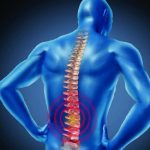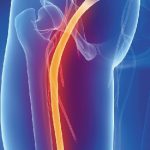
Peripheral neuropathy, a result of damage to the nerves outside of the brain and spinal cord (peripheral nerves), often causes weakness, numbness and pain, usually in your hands and feet. It can also affect other areas of your body.
Symptoms:
Signs and symptoms of peripheral neuropathy might include:
- Gradual onset of numbness, prickling or tingling in your feet or hands, which can spread upward into your legs and arms
- Sharp, jabbing, throbbing or burning pain
- Extreme sensitivity to touch
- Pain during activities that shouldn’t cause pain, such as pain in your feet when putting weight on them or when they’re under a blanket
- Lack of coordination and falling
- Muscle weakness
- Feeling as if you’re wearing gloves or socks when you’re not
- Paralysis if motor nerves are affected
If autonomic nerves are affected, signs and symptoms might include:
- Heat intolerance
- Excessive sweating or not being able to sweat
- Bowel, bladder or digestive problems
- Changes in blood pressure, causing dizziness or lightheadedness
Causes:
- Autoimmune diseases. These include Sjogren’s syndrome, lupus, rheumatoid arthritis, Guillain-Barre syndrome, chronic inflammatory demyelinating polyneuropathy and vasculitis.
- Diabetes. More than half the people with diabetes develop some type of neuropathy.
- Infections. These include certain viral or bacterial infections, including Lyme disease, shingles, Epstein-Barr virus, hepatitis B and C, leprosy, diphtheria, and HIV.
- Inherited disorders. Disorders such as Charcot-Marie-Tooth disease are hereditary types of neuropathy.
- Tumors. Growths, cancerous (malignant) and noncancerous (benign), can develop on the nerves or press nerves. Also, polyneuropathy can arise as a result of some cancers related to the body’s immune response. These are a form of a degenerative disorder called paraneoplastic syndrome.
- Bone marrow disorders. These include an abnormal protein in the blood (monoclonal gammopathies), a form of bone cancer (myeloma), lymphoma and the rare disease amyloidosis.
- Other diseases. These include kidney disease, liver disease, connective tissue disorders and an underactive thyroid (hypothyroidism).
Ref.: MayoClinic



No comment yet, add your voice below!